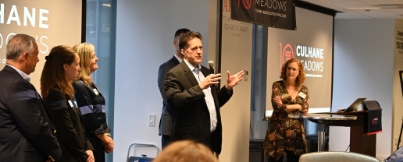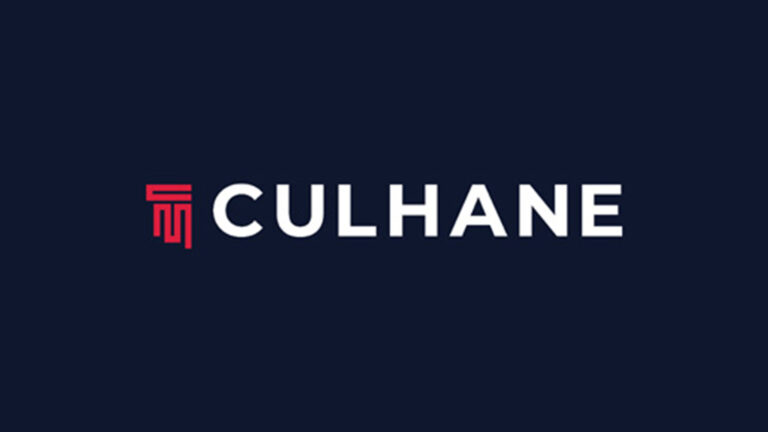This article explores the history of trademark nominative fair use and the recent case filed by In-N-Out Burgers against Door Dash. It looks at whether there is potential for a shift in traditional thinking about what is allowable under fair use in light of changes in our cul ture and how we use apps and visual stimuli to make purchasing decisions.
ture and how we use apps and visual stimuli to make purchasing decisions.
Every year, Oxford Dictionaries selects a word that reflects the year culturally. This year, OD didn’t select a word at all; it chose instead an emoji: “Face with Tears of Joy.” https://blog.oxforddictionaries.com/2015/11/word-of-the-year-2015-emoji “You can see how traditional alphabet scripts have been struggling to meet the rapid-fire, visually focused demands of 21st century communication,” Casper Grathwohl, president of Oxford Dictionaries says.
With that as the cultural backdrop, on November 6, 2015, In-N-Out Burgers sued Door Dash for using In-N-Out Burgers’ trademark (or something closely resembling it) to sell food delivery services. http://www.tmz.com/2015/11/11/in-n-out-lawsuit/ Using another’s trademark without permission has long been accepted under the theory of nominative fair use, provided:
a) The product or service cannot be readily identified without using the trademark;
b) You only take so much of the trademark as needed to communicate your truthful statement; and
c) You don’t do anything else to suggest affiliation with the trademark owner.
The first prong (a) is usually not an issue. The arguments happen over (b) and (c).
Traditionally, courts have said that limiting use to only the word mark—not logos—is consistent with what they mean by “only as much as you need.” And besides, courts have said, logos are more likely to imply endorsement, and thus suggest affiliation.
Here are some of the relevant cases:
- VW: Volkswagon sued a VW repair person who was using “Volkswagon” and VW” to advertise that he fixed VW cars. Volkswagenwerk Aktiengesellschaft v. Church, 411 F.2d 350, 352 (9th Cir. 1969).
- New Kids on the Block: A CA publication ran a promotion asking tweens to identify their favorite “New Kid on the Block”. New Kids on the Block v. News America Publishing, Inc.,971 F.2d 302, 306 (9th Cir. 1992)
- Playboy v Terri Wells: Playboy sued Ms. Welles, a former Playmate of the Year, who was using her title on her adult-content website. Playboy Enterprises, Inc. v. Welles, 279 F.3d 796(9th Cir. 2002).
- Ty Inc. V Perryman: The maker of Beanie Babies sued an Internet dealer who sold used Beanie Babies because she used “Bargain Beanies” as her company and domain name. Ty Inc. V Perryman, 306 F.3d 509 (7th Cir. 2001)
In each case, the court made it clear that using a logo would cross the line. The courts found that the would-be infringers could use another’s trademark if they didn’t use the logo or other colors/font of the trademark owner. In the Playboy case, “Ms. Welles. . . has not attempted to trick consumers into believing that they are viewing a Playboy-endorsed website. . . . [S]he does not use the classic Playboy bunny logo, she inserted disclaimers which clearly state that the website is not endorsed by PEI, and the font of the Playmate of the Year 1981 title is not [the] Playboy magazine font.” In Ty, the court said, “We cannot imagine a state of facts…that could possibly justify an injunction against [defendant’s] representing in her business name and Internet and Web addresses that she is doing what she has a perfect right to do, namely sell Beanie Babies.” The VW court said in justifying Church’s use of VW, “Another was the fact that Church did not use Volkswagen’s distinctive lettering style or color scheme, nor did he display the encircled ‘VW’ emblem.”
Enter Door Dash. If you haven’t tried Door Dash yet, you may not know that it populates its advertising with logos of restaurants from which DD will deliver. https://www.doordash.com/store/?city=north-center Door Dash allows you to place an order online and then they bring it to you. Some of the restaurants appreciate Door Dash’s services; In-N-Out Burgers isn’t one of them. It would be hard to imagine Door Dash being able to do what it does without reference to the restaurants that it gets food from. The existing nominative fair use doctrine allows it to use the names of those restaurants.
The question is, has our culture changed so much from the Volkswagen, Beanie Baby, Playboy and New Kids eras that a court is now going to find that logos are also fair game? Millennials live and breathe short visual messages. The Oxford Dictionary believes that a picture is now an acceptable “word” of the year. Can Door Dash effectively communicate its offerings without logos? What makes logos and graphical fonts so different from words anyway, that one communicates endorsement and the other doesn’t? We’ll be following this case carefully.
 Angela Washelesky’s practice focuses on trademark prosecution and marketing law. She advises clients, from small entrepreneurial start ups to large multi-national corporations, with regard to trademark clearance, trademark prosecution, international trademark strategy, trademark enforcement, compliance with advertising and trade practice laws, including substantiation of claims, sweepstakes and contests, privacy issues, and dispute resolution.
Angela Washelesky’s practice focuses on trademark prosecution and marketing law. She advises clients, from small entrepreneurial start ups to large multi-national corporations, with regard to trademark clearance, trademark prosecution, international trademark strategy, trademark enforcement, compliance with advertising and trade practice laws, including substantiation of claims, sweepstakes and contests, privacy issues, and dispute resolution.












